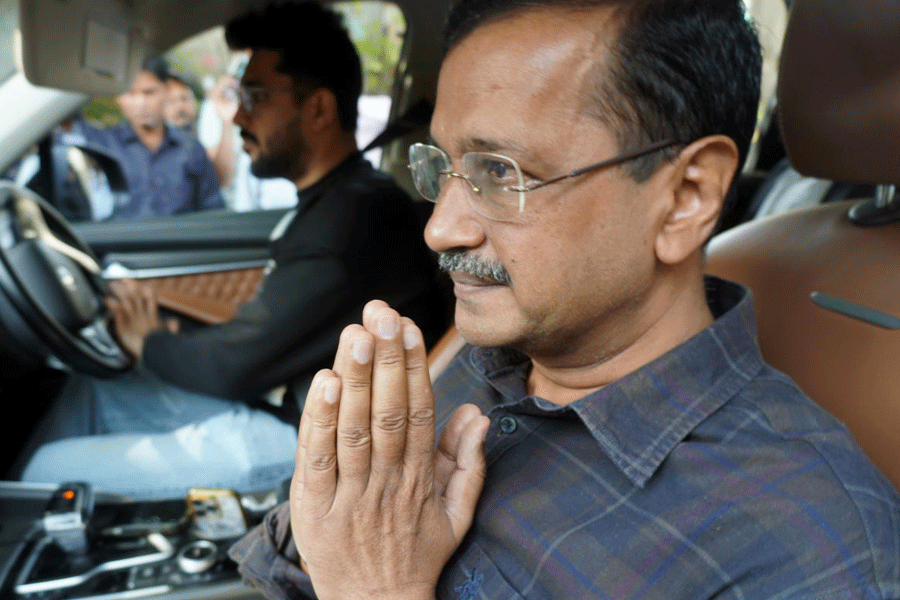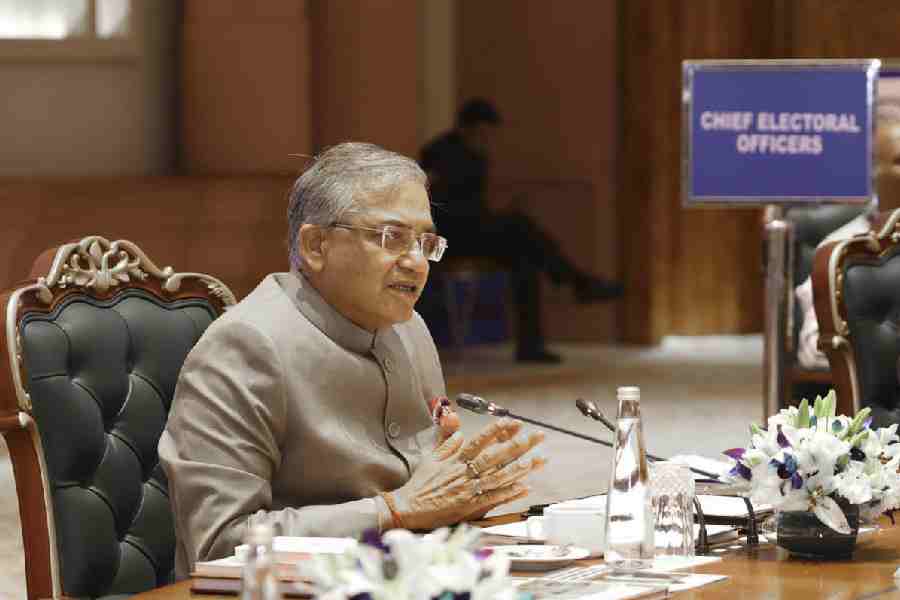The Supreme Court will on July 27 hear an appeal challenging the constitutional validity of the sedition law, on a joint petition by two journalists who have argued it is increasingly being used to silence the central and state governments’ critics.
The Centre had earlier on Monday sought two weeks’ time from the Supreme Court to submit its views on the petition that seeks the quashing of Section 124A of the Indian Penal Code as unconstitutional.
Journalists Kishore Chandra Wangkhemcha from Manipur and Kanhaiya Lal Shukla from Chhattisgarh have filed the petition. Both face sedition charges in their states. Wangkhemcha spent 210 days in custody before obtaining bail, while Shukla had obtained anticipatory bail.
The bench of Justices U.U. Lalit and Ajay Rastogi posted the matter to July 27 after attorney-general K.K. Venugopal and solicitor-general Tushar Mehta, both representing the Centre, sought two weeks’ time. The top court had issued notices to the Union government on the petition in April.
The petition seeks reconsideration of the 1962 Supreme Court judgment in the Kedar Nath Singh case that upheld the constitutional validity of the colonial-era sedition law, ruling that the restrictions it imposes on freedom of speech and expression are reasonable.
“The central tenet of the petitioners’ argument is that while the Hon’ble Supreme Court may have been correct in its finding nearly 60 years ago, Section 124A no longer passes constitutional muster today,” the petition says.
A total of 149 cases of sedition have been registered over “critical” or “derogatory” remarks against the Prime Minister and 144 cases over remarks against the Uttar Pradesh chief minister since 2010, the petitioners have said quoting a database prepared by the online portal Article 14.com.
The petition argues that the sedition law, which can lead to a life term, had been invoked by the British raj to silence dissent and suppress the freedom movement, and was no longer required in a free and democratic India.
“Highlighting a failure of government falls squarely within one’s democratic rights; given the importance of the media in ensuring the accountability of government to the electorate, such action should not attract sedition charges,” it said.
The petitioners have underlined that outspoken and responsible journalists have been charged with sedition for questioning their state governments or the Centre — and sometimes for sharing comments or cartoons on social media.
Wangkhemcha said one of the FIRs registered against him since 2018 relates to his criticism of the government in a Facebook post over a crisis at Manipur University, where students were agitating against the vice-chancellor over charges of corruption and high-handedness.
An FIR for sedition was registered against Shukla in Chhattisgarh on April 28, 2018, after he shared cartoons on Facebook. He says it was the state government’s revenge against him over his work as a human rights activist and journalist.
“These FIRs have an unacceptable ‘chilling’ effect on the petitioners as well as on other journalists and threaten their work and their right to freedom of expression,” the petition says.
Section 124A says: “Whoever, by words, either spoken or written, or by signs, or by visible representation, or otherwise, brings or attempts to bring into hatred or contempt, or excites or attempts to excite disaffection towards the government established by law in India, shall be punished with imprisonment for life, to which fine may be added, or with imprisonment which may extend to three years, to which fine may be added, or with fine.”
It explains that “disaffection” includes disloyalty and all feelings of enmity and that criticism of the government “without inciting or attempting to incite hatred, contempt or disaffection do not constitute an offence under this section”.










